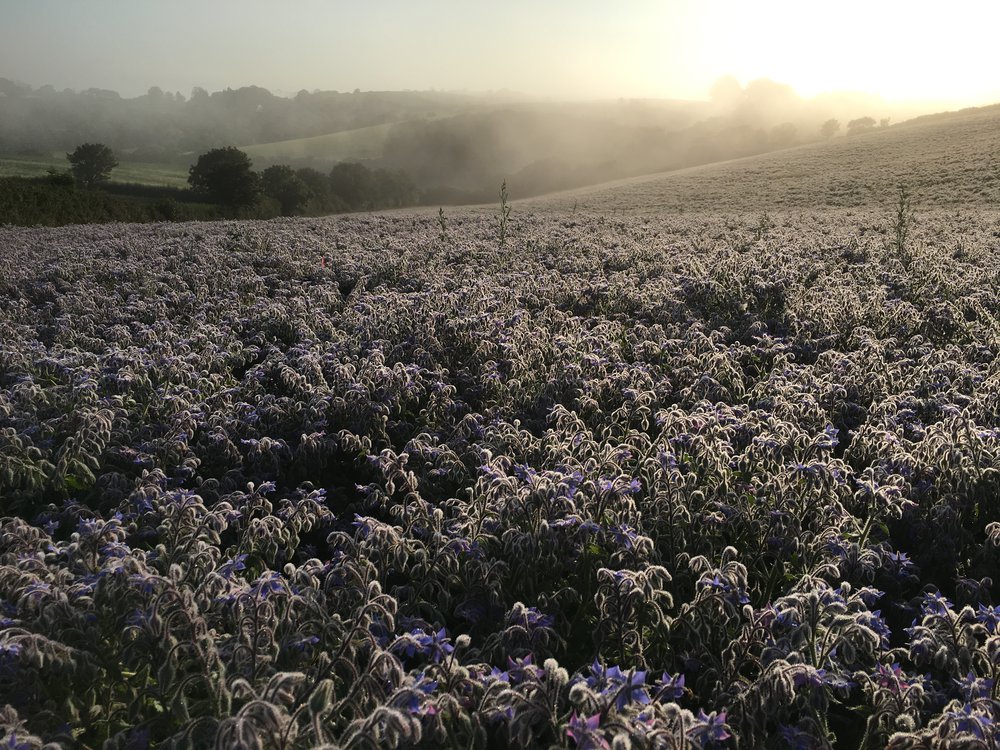Back to the future
Trelonk Estate’s mission is to improve health and wellbeing through a sustainable and profitable agricultural enterprise
Trelonk (meaning Long House) is very much an experimental farm. Once home to a busy brickworks, it provided the perfect setting for Mark Parnall’s personal residence but also offered significant potential for diversification and farming exploration.
Mark knew that the Site of Special Scientific Interest (SSSI) surrounded by the Fal was deserving of being looked after and, as a family business with strong roots in Cornwall since the 1600s, it made sense that he would bring his nephew Adam on board to help him run the farming enterprise. After purchasing it in 2016, Mark initially set about repurposing buildings for diversification at the same time as ensuring they maintained their Cornish charm.
“This was really the starting point for us,” he said. Parnall Group, of which Mark is the founder & CEO, is a dynamic organisation operating companies in innovation, biotechnology and legal & financial services. With links to bio engineering, marine, aircraft rebuilding two Supermarine Spitfires and the education of future generations via the Parnall Foundation, it was important that the Parnall Group had a base that reflected its sustainable ethos and heritage.
Buildings were turned into office space and units. “However, our mistake was thinking too much about the diversification and not the future of the farm, we converted too many of our agricultural buildings,” Mark explained. Investment has gone into providing accommodation to support the young people who are being educated by the Parnall Foundation, which provides training and opportunities to work on unique projects on the estate. With the support from in-house industry experts, Parnall Foundation engages people in projects ranging from research and development, aviation, marine, alternative reality engineering, design, hospitality and horticulture. The ambition is that it will provide them with the skills to stay in Cornwall and build their future careers.
An experimental farm
The farm is set over 170 acres and grows a variety of nutrient dense oil seed crops for the purpose of harvesting the essential oils through cold pressing. Crops currently grown include borago officinalis (borage), calendula officinalis L. (calendula), camelina sativa (camelina), helianthus annus (sunflower), rosa damascene, rosa centifola (rose) and cannabis sativa (hemp).

As an experimental farm there are also trial crops of amaranth, chia, echium, lunaria and safflower. Adam, who graduated with a BSc in environmental geoscience from Cardiff University, said: “We see ourselves as disrupters. These oil seed crops are grown as the extracted oils offer health benefits as nutraceutical product. But the crops are neither easy to grow nor are they common.” The farm is growing a lot of raw material as part of a study with Exeter University. Adam’s approach to cultivating is through precision farming. Using agritech monitoring and techniques designed to have a light earth touch, Adam’s ambition is to improve and protect the natural resources of Trelonk while providing a foundation for a scalable farming enterprise. These crops can require specialist machinery, in some cases less intensive than modern machinery.
This strategy of diversification is also designed to be a profitable and scalable farming enterprise that aims to capitalise on the evolving markets of naturally derived medical plant compounds.
With such a high focus on sustainability and care for the environment, Adam is keen for there to be a circular economy, with the waste from the crops being used to feed cattle. There are 20 beehives aiding the pollination of crops and producing honey, which bolts onto the side of the farm business. Adam said: “Yields of insect-pollinated crops have been shown to increase by up to 20% following the introduction of pollinators to the crop proximity and by harnessing the power of this association, we believe we can satisfy both our responsibility to provide for insects, as well as our obligation to create a profitable farming enterprise.”
Environmental credentials
Mindful practices
Trelonk is situated within a variety of different environmental and ecological destinations. Bordered by the internationally important Fal Ria and surrounded by SSSI and Special Areas of Conservation, there is a strong drive for it to consider the consequences of its farming on the wider landscape. Balancing primary production with production of niche crops whilst in turn generating an income offers the team exciting challenges.
Cultivating exotic or historic crops such as these also requires specialist knowledge. Adam and the farm team continue to learn as they go by taking on board what they have learnt from previous years’ crops from both a farming and scientific perspective and making adjustments for the following year’s crop and harvest. For example, the team has learnt that some of the crops require specialist agronomy and machinery, or are susceptible to fungus in wetter environments, which allows them to adapt to help future production. Within five years Adam hopes that it will be fully regenerative: “We make small changes year on year to achieve this,” he said.
As a new grower, establishing roots to market has been a challenge. The farm currently sells business to business but there is a strong ambition to generate a business to consumer income in the future. With the ability to both grow and process on site, Trelonk aims to provide full traceability and authenticity of its products, underpinned by regenerative farming methods and strong environmental credentials. Trelonk is beginning to find its niche by discovering what the land is capable of farming and what can be produced to profit the farm.
Mark, Adam and the team aim to turn back the clock and bring the soil and environment back to its original glory by harnessing new technologies to improve farming practices, enabling them to continue to grow these specialist crops and to positively disrupt entrenched traditions of UK agriculture.